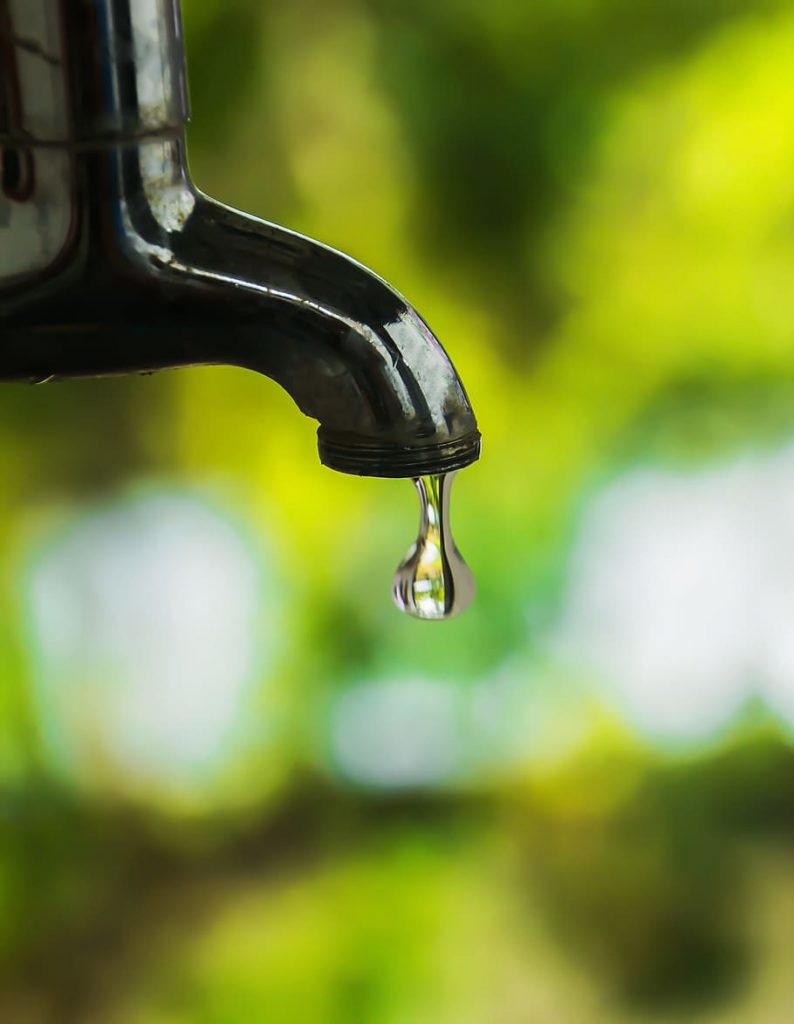 Abraham Lincoln
If given the truth, the people can be depended upon to meet any national crisis...
Abraham Lincoln
If given the truth, the people can be depended upon to meet any national crisis...
 Guildford news...
for Guildford people, brought to you by Guildford reporters - Guildford's own news service
Guildford news...
for Guildford people, brought to you by Guildford reporters - Guildford's own news service
Make Every Drop Count, Says Thames Water as Heatwave Spreads Across South-East
Published on: 7 Aug, 2020
Updated on: 8 Aug, 2020
 Thames Water is asking everyone to make every drop count with temperatures set to soar again over the weekend.
Thames Water is asking everyone to make every drop count with temperatures set to soar again over the weekend.
Hot weather and people with more time at home than usual means water use across Guildford could rocket by up to 20 per cent as hoses fill paddling pools and water gardens.
After one of the wettest winters on record reservoirs hold a “good amount” of water. But at peak times on hot days, customers in some areas are using water faster than it can be safely treated and pumped through the underground network of pipes. Higher demand for water will also inevitably reduce reservoir levels quicker than normal.
Andrew Tucker, water efficiency manager at Thames Water, said: “Making every drop count inside and outside our homes by taking shorter showers, turning off sprinklers and reusing water where possible, means we can all help keep taps flowing so everyone can still have access to water for the essentials like hand-washing and staying hydrated. With millions of homes using more water every day, being water-efficient in the garden and inside the home will really help us ensure there’s enough to go around.”
 Thames Water’s top water saving tips are:
Thames Water’s top water saving tips are:
- Don’t fill paddling pools to the brim and, when kids and pets have finished playing in them, use the water to give thirsty plants a drink;
- Use a bucket to wash the car and a watering can to water plants instead of hoses or sprinklers which use a whole week’s worth of water in just one hour;
- Lawns are water-hungry. Letting them go brown is OK. Established lawns, even if brown, will bounce back as soon as it rains again so there’s no need to water them;
- Showers normally make up around 25 per cent of an average household’s water usage. Simple reductions in shower time can have a massive impact on overall usage. If a family of four reduce their showers by one minute each they’d save 11,648 litres of water a year;
- Find and fix any leaks in your home including taps and toilets. One in 20 homes has a constantly flowing toilet which uses up to 400 litres of water per day, literally water and money down the pan;
- Fill a spray bottle with water and spritz it over your face and body for a quick cool. This uses way less water than showering or spraying yourself and others with the hosepipe; and
- Storing a jug of tap water down in the fridge is a great way to keep it cold and refreshing. Alternatively, pop ice cubes in your drink which will help lower its temperature. Both are better than leaving the tap running for ages to get some cool water.
To save more water, Thames Water’s engineers have also been working around the clock to reduce the amount being lost through leaks and have installed new equipment at its water treatments sites to increase the speed at which they can treat water and pump it to customer taps.
Mr Tucker added: “Using less water at home and reducing leakage means we can leave more for nature in our rivers and reservoirs, and give essential underground sources a chance to recover, reducing the risk of shortages in the future.”
Over the next five years, Thames Water will be investing more than £55 million to upgrade the water network in Guildford. This includes plans to replace 14km of pipework and improve links in the system, keeping water flowing to homes when demand rises.
Find out about other water saving tips.
Responses to Make Every Drop Count, Says Thames Water as Heatwave Spreads Across South-East
Leave a Comment Cancel reply
Please see our comments policy. All comments are moderated and may take time to appear. Full names, or at least initial and surname, must be given.Recent Articles
- Brutal Thieves Slaughter Animal for Its Meat Which Could Cause Sickness If Eaten
- Highways Bulletin May 19 – Protecting Wildlife During Roadworks
- Letter: It Would Be Good to Have Wind Turbines on the North and South Downs
- Letter: CIL Victims Deserve an Apology and Their Money Back
- 30 Objections Received on South Guildford Garden Infill Proposal
- Ash Residents Come Together To Counter Catapult Attacks On Canal Wildlife
- Notice: Guildford Homestay
- Letter: Cowardly Attacks on Wildlife Have Got To Be Stopped
- Angry CIL ‘Debtors’ Thanked for Their Patience by Waverley Council
- Letter: If the Shalford Councillor Wants Wind Turbines Put Them in Shalford


Recent Comments
- R Wong on Angry CIL ‘Debtors’ Thanked for Their Patience by Waverley Council
- Paul Robinson on Ash Residents Come Together To Counter Catapult Attacks On Canal Wildlife
- J Crawford on Angry CIL ‘Debtors’ Thanked for Their Patience by Waverley Council
- Brian Quinn on Angry CIL ‘Debtors’ Thanked for Their Patience by Waverley Council
- Rainee Wornham on This Year’s Guildford Fireworks Night By the Lions Could Be the Last
- Susan Smith on Birdwatcher’s Diary No.327
Search in Site
Media Gallery
Dragon Interview: Local Artist Leaves Her Mark At One of England’s Most Historic Buildings
January 21, 2023 / No Comment / Read MoreDragon Interview: Lib Dem Planning Chair: ‘Current Policy Doesn’t Work for Local People’
January 19, 2023 / No Comment / Read MoreA3 Tunnel in Guildford ‘Necessary’ for New Homes, Says Guildford’s MP
January 10, 2023 / No Comment / Read More‘Madness’ for London Road Scheme to Go Ahead Against ‘Huge Opposition’, Says SCC Leader
January 6, 2023 / No Comment / Read MoreCouncillor’s Son Starts Campaign for More Consultation on North Street Plan
December 30, 2022 / No Comment / Read MoreCounty Council Climbs Down Over London Road Works – Further ‘Engagement’ Period Announced
December 14, 2022 / No Comment / Read MoreDragon Interview: GBC Reaction to the Government’s Expected Decision to Relax Housing Targets
December 7, 2022 / No Comment / Read MoreHow Can Our Town Centre Businesses Recover? Watch the Shop Front Debate
May 18, 2020 / No Comment / Read More










Martin Elliott
August 7, 2020 at 1:14 pm
The usual audacity from the water utilities. Yes, they took over an aged infra-structure but with a promise to improve performance, particularly leakage.
“To save more water, Thames Water’s engineers have also been working around the clock to reduce the amount being lost through leaks….”
The utilities report the leakage from the system is 16-20%, all treated, potable water.
Of course, Ofwat does its bit in pressurising the companies to declare aggressive targets for leakage reductions. The targets are quoted as a percentage of leakage, not overall throughput, which is less than impressive at 0.4 per cent. In other words, the current programme is to eliminate leakage in around 20 years.
I wonder, after years of the same “tips” to consumers, what they predict we could save this year?